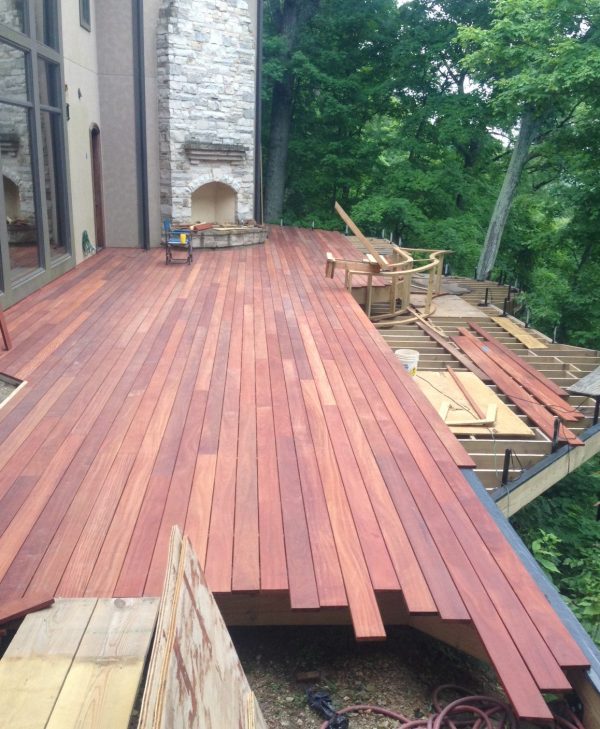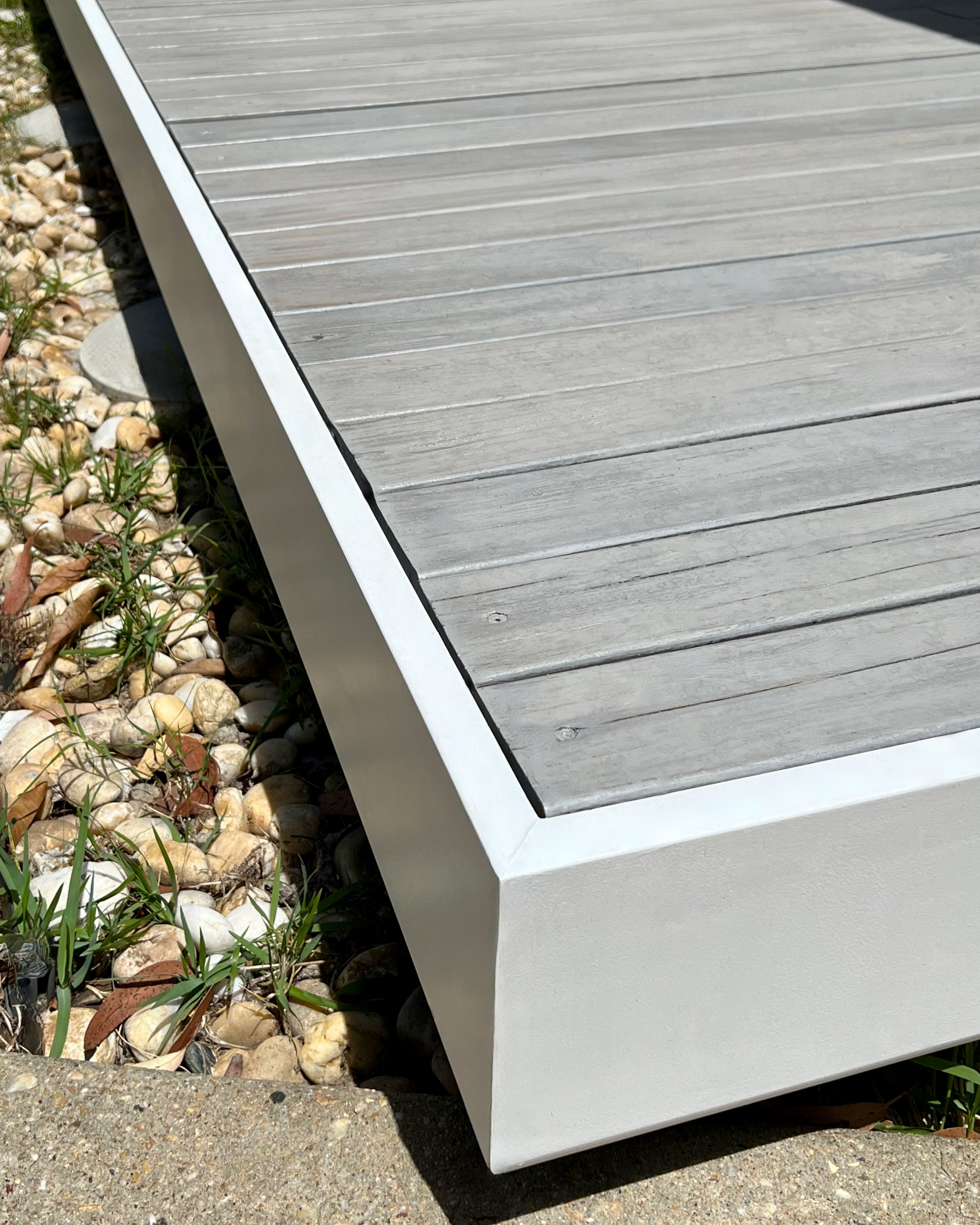Hiring an skilled deck installer Austin is the first step toward creating your ideal outdoor space.
Hiring an skilled deck installer Austin is the first step toward creating your ideal outdoor space.
Blog Article
How to Choose the Right Materials for Your Deck Installation Project
Choosing the suitable materials for your deck installment task can appear complicated. The secret is to balance your budget, layout choices, and way of life needs to create a deck that will certainly improve your outdoor room for years to come.
Comprehending the Different Sorts Of Deck Materials
When getting started on a deck installment task, the choice of products comes to be an essential decision. Numerous alternatives are offered, each with one-of-a-kind characteristics and visual allure. Traditional timber, as an example, provides an ageless, all-natural look and is typically a lot more cost-efficient. Nevertheless, it can warp in time and requires regular maintenance. Composite products, on the other hand, are a blend of timber and plastic, supplying longevity and resistance to weather components. They require less maintenance compared to wood but are usually a lot more pricey. Another choice is vinyl, which is virtually maintenance-free and resistant to pests and rot, albeit less natural-looking. By recognizing these distinctions, homeowners can make a much more educated decision on one of the most ideal deck material for their details demands.
Evaluating the Sturdiness and Upkeep Needs of Deck Products
Analyzing the durability and upkeep demands of deck products is an essential action in deck setup. Sturdiness includes the material's capability to stand up to extreme weather, deterioration, and its durability. Cedar and redwood are normally immune to rot and bugs, making them long lasting options. On the other hand, pressure-treated wood, while durable, might call for even more maintenance due to its sensitivity to fracturing and buckling.
Recognizing maintenance needs is similarly essential. Some products need regular securing or staining to keep their look and resist dampness damage, while others, like composite outdoor decking, demand much less maintenance. By evaluating these variables, one can select the most appropriate outdoor decking material, making certain a balance in between durability, upkeep demands, and visual charm.
Cost Analysis: Contrasting Wood and Compound Decking
Although cost might initially appear like a secondary worry, it is a significant variable when comparing timber and composite decking. Wood, usually a less costly alternative, has a lower in advance cost. Nevertheless, with time, maintenance costs can gather, potentially making wood extra costly over time. These upkeep costs might consist of discoloration, sealing, or changing damaged boards. On the other hand, composite outdoor decking, while pricier at first, requires much less maintenance, potentially decreasing lasting prices. It's crucial to bear in mind that composite outdoor decking isn't resistant to wear and tear, and replacement expenses can be high. Possible deck proprietors have to consider their spending plan and readiness to maintain their decks when deciding between timber and composite outdoor decking.
Looks and Style Flexibility of Decking Products
While expense is a vital factor to consider, the visual charm and design adaptability of outdoor decking materials additionally play a considerable role in the decision-making procedure. Different materials use varying degrees of aesthetic appeal. As an example, natural timber decking gives a traditional, timeless appearance, while composite materials supply a vast array of shades and textures to fit diverse preferences and styles. Layout flexibility refers to the capability to form and manipulate the decking product to meet certain layout requirements. Timber, for instance, supplies high layout adaptability due to its ease of reducing and forming. Composite products, while much less adaptable in style, are still adaptable enough for the majority of deck styles. These factors, for that reason, are important components in the selection of decking material.
Ecological Impact of Decking Products
When selecting outdoor decking materials, one need to take into consideration not just visual appeals and longevity, however also the ecological impact. It is very important to analyze the sustainability of products and discover recycled decking options. Recognizing the prospective influence on neighborhood environments will guarantee an extra environmentally liable selection.
Analyzing Product Sustainability
In the realm site web of deck building and construction, analyzing material sustainability is a vital action. Composite decking products usually incorporate timber and plastic, minimizing the demand for brand-new timber but raising dependence on fossil fuels - deck installation. Hence, the option of decking products ought to stabilize performance, aesthetic appeals, expense, and sustainability to make certain a responsible and lasting installation.
Recycled Outdoor Decking Options

Composite outdoor decking is specifically popular as a result of its longevity and ease of maintenance. It's immune to rot, pests, and fading, making it a durable option. Recycled plastic decking, on the other hand, is highly resistant and requires very little upkeep. While these materials may lug a higher first price, their longevity and decreased ecological effect make them a sensible investment for the eco-conscious property owner.

Influence On Local Ecological Communities
While the benefits of utilizing recycled products for decking can not be overemphasized, it's just as crucial to think about the broader ecological implications of these choices. The extraction, handling, and transport of materials can greatly influence neighborhood communities. Logging for wood outdoor decking adds to habitat loss and climate adjustment. Even the manufacturing of composite products can release damaging emissions. Conversely, making use of recycled or sustainably sourced materials can help alleviate these impacts. Additionally, thinking about the life-span of materials can lower ecological effect; longer-lasting options call for much less constant replacement, therefore saving sources. Correct disposal of old decking is crucial to reducing landfill waste. Basically, an eco-conscious deck job demands cautious material selection, sustainable sourcing, and liable disposal.
Making Your Decision: Tips for Selecting the most effective Deck Products
As the article changes into the subtopic of "Making Your Decision: Tips for Picking the most effective Deck Products", it is vital to recognize the range of deck materials available. Striking a balance in between resilience and aesthetics is vital in this option process. The complying with discussion will certainly lead viewers in making an educated choice based on these vital considerations.
Understanding Different Deck Products
The job of selecting the best materials for your deck setup can seem daunting due to the large array of options readily available. Vinyl or PVC decks are also more long lasting and require much less browse around this site upkeep than composite products, yet they can look much less all-natural. Light weight aluminum decks are solid, light-weight, and resistant to rot, but they are likewise the most costly choice.
Resilience vs. Appearances Equilibrium
Balancing sturdiness with aesthetic appeals can be an obstacle when choosing deck products. The decision often comes down to personal preferences and the deck's intended usage. High-traffic areas may demand resilient products like composite outdoor decking, which withstands deterioration yet might do not have the all-natural charm of timber. On the other hand, wood offers a classic allure and heat that synthetic materials battle to reproduce. Nevertheless, it needs much more maintenance and might not last as long. Homeowners require to strike an equilibrium, taking into consideration both the deck's practical demands and their visual choices. By doing so, they can guarantee their deck stays a practical and appealing outdoor space for many years to come.
Verdict
In conclusion, selecting the right materials for your deck setup job needs cautious find out here now consideration of variables such as longevity, upkeep, price, appearances, and ecological impact. Whether you choose typical wood or composite materials, your option should line up with your budget, layout choices, and lifestyle. Eventually, the most effective outdoor decking product is one that improves your exterior space and gives pleasure for many years to find.
Report this page